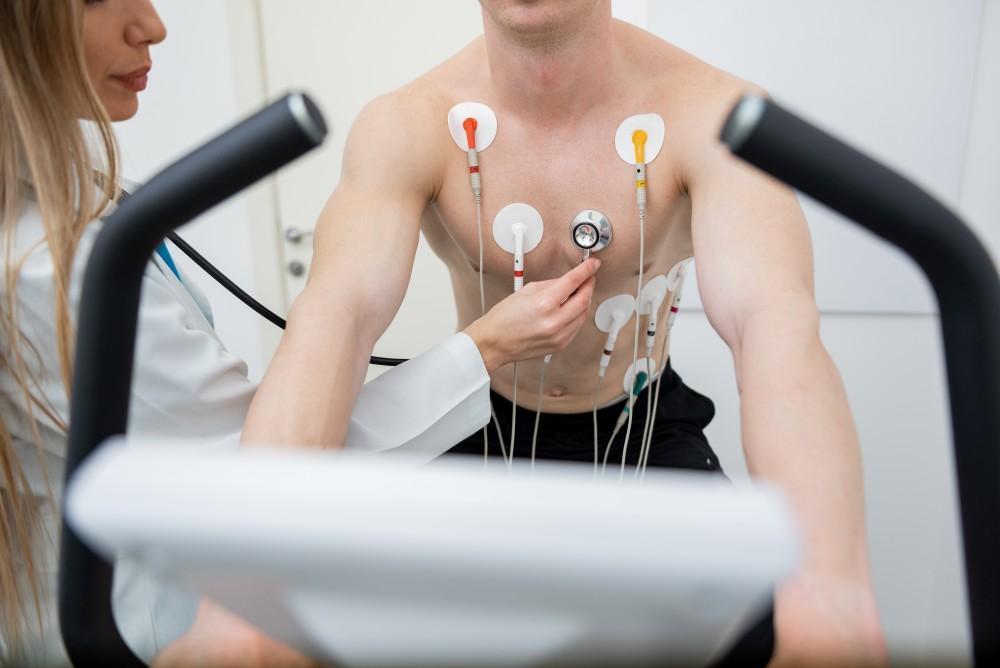
How Does a Nuclear Stress Test Work?

Stress tests 一 sometimes called exercise tests 一 use an electrocardiogram (EKG) to assess how well your heart functions when you exercise. These exercises place stress on your heart and can reveal issues that aren’t always visible when your heart’s at rest. Understandably, the results of stress tests are useful for diagnosing heart conditions, but they’re also useful for planning for surgery and assessing how well treatments are working.
In some cases, Dr. Henock Saint-Jaques may recommend a nuclear stress test. A nuclear stress test is similar to a traditional stress test except for the addition of a radioactive dye 一 a very useful addition that highlights damage in your heart and substandard blood flow issues.
But how does this test work? Read on to learn more.
Understanding nuclear stress tests
In traditional stress tests, you walk/run on a treadmill or ride on a stationary bike while electrodes are attached to your chest. As you increase the intensity of your exercise, the EKG electrodes record all of the electrical activity in your heart. Once your heart reaches a target heart rate or you can no longer continue, you lay down and the EKG machine monitors your heart as it returns to its resting rate.
A nuclear stress test functions under the same general principles with one exception. Prior to your test, you receive a small amount of a tracer 一 radioactive material that shows up clearly on imaging tests. Because the tracer is highlighted so clearly on images, it provides a better picture of your heart, how it’s functioning, and areas where blood flow is compromised.
How does a nuclear stress test work?
There’s no denying that nuclear stress tests are important. Nuclear stress tests help Dr. Saint-Jacque determine your risk of having a heart attack or coronary artery disease. This information can help shape a potentially life-saving treatment plan, but how does it work?
First, we inject the radioactive tracer. This is sometimes called a radiopharmaceutical, and it oftens feels cold as it enters your bloodstream. Once the tracer reaches your heart, you lay down under a gamma camera, and we take the first images of your heart. This camera detects the small amounts of radiation released by the tracer and produces computer images of the heart.
Then, we place the electrodes on your chest and a blood pressure cuff on your arm. At this point, you will either:
- Exercise on a treadmill or stationary bike
- Take medication that mimics exercise (if you can’t exercise)
Once your heart rate reaches the goal (or you’re too uncomfortable to continue), you receive a second tracer injection and a second set of images.
Dr. Saint-Jacque can then compare the images to look for blockages or any other issues that compromise the functionality of your heart. This is a major difference from a traditional stress test that only produces EKG results. EKGs provide graphs that measure your heartbeat and rhythm, but no other images are provided.
Nuclear stress tests work (to help shape treatment plans) by providing visual images that allow our team to visually inspect your heart from the outside without any incisions or endoscopic procedures.
Why you might need a nuclear stress test
Nuclear stress tests show if your heart gets enough oxygen and blood flow while you work hard. You may benefit from a nuclear stress test to:
- See if you have suspected blockages
- Evaluate how well treatments, such as surgery or medications, are working
- Assess your risk for heart disease and other complications
To learn more about nuclear stress tests or to schedule an appointment, call us at 646-381-2181. Or, you can book an appointment online.
You Might Also Enjoy...


Is It Possible to Lower My Blood Pressure Naturally or Do I Need Medicine?

What You Can Do Now to Prevent a Stroke Later in Life

3 Noninvasive Tests That Measure the Health of Your Heart

What Can I Do About My Varicose Veins?


